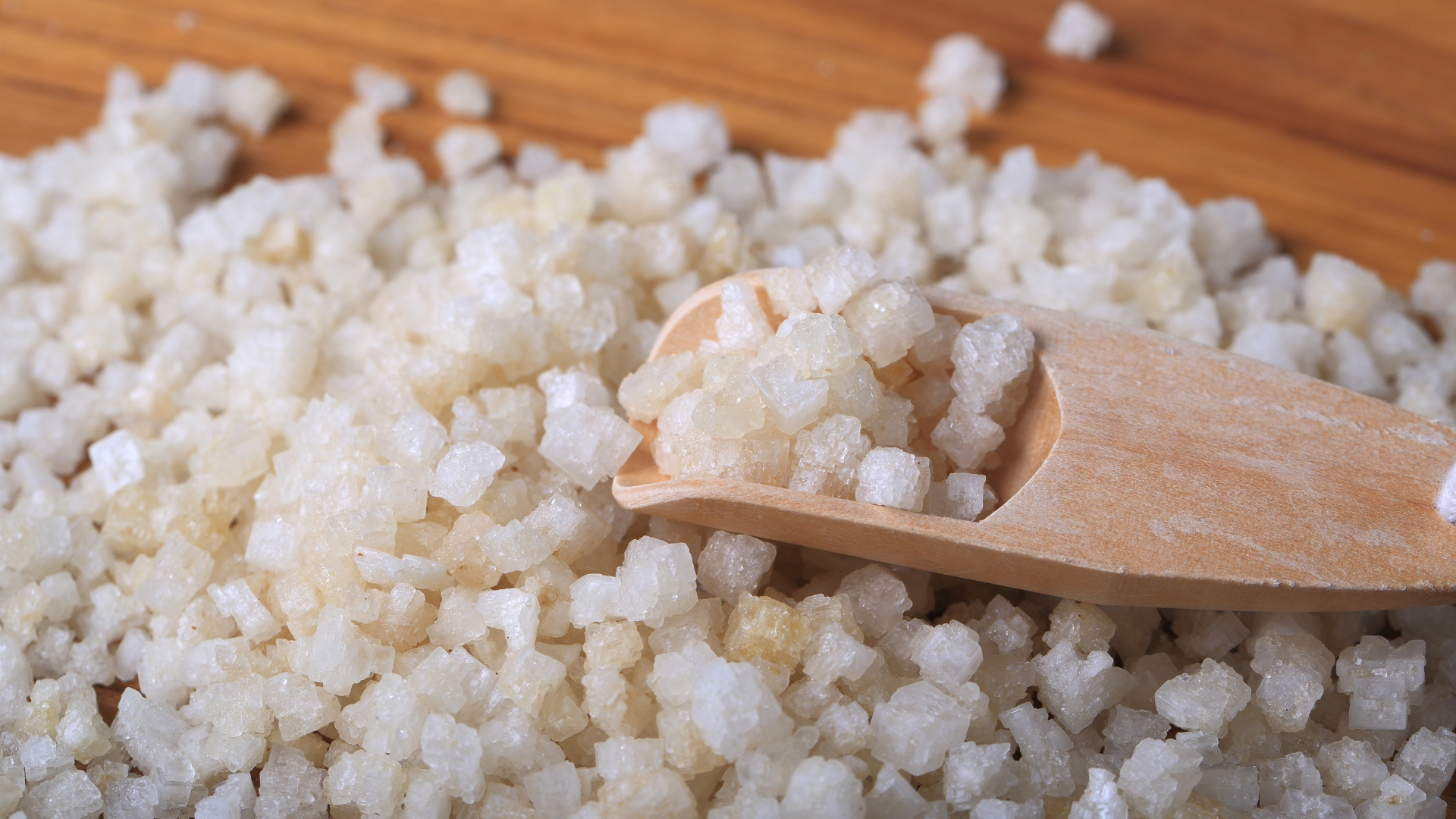
Epsom salt, also known as magnesium sulfate, has been used for centuries as a natural remedy for a variety of health, beauty, and household concerns. Unlike table salt, it’s a mineral compound made up of magnesium, sulfur, and oxygen. This blog explores the benefits, everyday uses, and possible side effects of Epsom salt to help you make the most of this versatile substance.
Table of Contents
What is Epsom Salt?
Epsom salt is a naturally occurring mineral compound primarily made up of magnesium sulfate (MgSO₄). It was first discovered in Epsom, England, from where it gets its name. Unlike traditional salt, Epsom salt has a bitter taste and is not meant for culinary use.
Top Health Benefits of Epsom Salt
1. Relieves Muscle Pain and Cramps
Soaking in a warm Epsom salt bath helps reduce inflammation and soothes sore muscles, making it popular among athletes and those with arthritis.
2. Reduces Stress and Improves Sleep
The magnesium content promotes serotonin production in the brain, which helps you feel relaxed and promotes deeper sleep.
3. Detoxification
Epsom salt baths are known to draw out toxins and heavy metals from the body through the skin, aiding in natural detox.
4. Promotes Digestive Health
Taken in small, doctor-approved doses, Epsom salt acts as a laxative and helps relieve occasional constipation.
5. Improves Skin Conditions
It helps reduce skin inflammation, ease sunburn, and relieve conditions like eczema and psoriasis when used topically.
Everyday Uses of Epsom Salt
Personal Care
-
Bath soak for relaxation
-
Foot soak for cracked heels
-
Facial exfoliator (mixed with olive oil)
Home Cleaning
-
Tile and grout cleaner
-
Garden fertilizer (for magnesium-deficient soil)
-
Natural handwash (when mixed with baby oil)
Beauty Treatments
-
Hair volumizer
-
Blackhead remover
-
DIY bath bombs and scrubs
Possible Side Effects
While Epsom salt is generally safe, overuse or improper use can lead to certain side effects:
-
Diarrhea or upset stomach (when ingested excessively)
-
Skin irritation or allergic reaction (in sensitive individuals)
-
Magnesium toxicity (rare but possible with high oral doses)
-
Dehydration if used too frequently in baths
Note: Always consult your doctor before consuming Epsom salt, especially if you have kidney problems, heart conditions, or are pregnant.
How to Use Epsom Salt Safely
-
For baths: Add 1–2 cups of Epsom salt to warm water and soak for 15–20 minutes.
-
For feet: Use ½ cup in a basin of warm water for 10–15 minutes.
-
For constipation relief (oral use): Follow package instructions or consult a physician.
Epsom salt is a budget-friendly, natural solution with a wide array of benefits—from easing muscle pain and stress to enhancing skin health and aiding digestion. However, it's important to use it responsibly and be aware of possible side effects. Whether you're looking for a relaxing bath soak or a skin remedy, Epsom salt is a powerful tool to keep in your wellness kit.


